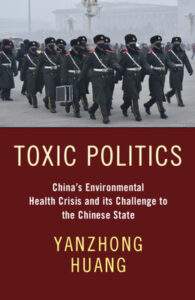 A regime once known for its technocratic efficiency could soon face a growing legitimacy crisis, notes Yanzhong Huang, Senior Fellow for Global Health at the Council on Foreign Relations, Seton Hall University Professor and author of Toxic Politics.
A regime once known for its technocratic efficiency could soon face a growing legitimacy crisis, notes Yanzhong Huang, Senior Fellow for Global Health at the Council on Foreign Relations, Seton Hall University Professor and author of Toxic Politics.
In the Financial Times, Shan Weijian, the chair and CEO of a leading Asia-focused private equity firm, observed that the Chinese economy is currently “in the worst shape in the past 30 years” and popular discontent in China is at its highest point since the 1989 Tiananmen Square crackdown, he writes for Foreign Affairs:
For Chinese President Xi Jinping, the stakes could not be higher. The all-important 20th Chinese Communist Party (CCP) Congress is scheduled for later this year, and the purported success of Beijing’s COVID-fighting strategy has been a central part of state propaganda almost since the pandemic began. If Beijing loses the trust and support of the public on this core issue—at a time when the Chinese economy itself is suffering from continual lockdown shocks—a regime once known for its technocratic efficiency could soon face a growing legitimacy crisis.
Like Putin’s Russia, Xi’s China appears to be caught in what one journalist recently called an “authoritarian feedback loop,” in which a long-ruling, insulated leader is surrounded by advisers who have no interest in challenging his views, Huang adds. RTWT
Too Autocratic to Fail? https://t.co/A93O3MGcKi
— Democracy Digest (@demdigest) May 17, 2022







